Blog
Struggling With IBS? Try Acupuncture!

Do you experience stomach cramps on a regular basis? Do you find yourself heading to the bathroom all throughout the day? When you get stressed out, do you have digestive issues? Have you recently been diagnosed with inflammatory bowel syndrome (IBS)?
If you answered yes to any of the above questions, you know what a terrible inconvenience it is to live with IBS. Anyone who has this condition will readily tell you what a negative impact it can have on his or her quality of life.
The number of people being diagnosed with IBS has risen steadily over the past decade. And in response, Western Medicine has provided a variety of over-the-counter and prescription medications to alleviate the symptoms of IBS. Many of these drugs have side effects and are not primarily designed to resolve the root cause that is creating the symptoms of irritable bowel syndrome.
Traditional Chinese Medicine, which includes acupuncture and Chinese herbs, has proven very effective at providing relief and improving the quality of life to those who live with these issues. We wanted to take some time to write about what IBS is, what causes it, how common it is and how acupuncture can help provide relief.
What is IBS?
The Mayo Clinic states that irritable bowel syndrome (IBS) is a common disorder that directly affects the large intestine (colon). IBS commonly causes a variety of digestive disorders including: abdominal pain, cramping, gas, bloating, diarrhea and constipation. [Link] People who live with this condition are greatly affected by how their digestive system reacts and they tend to have very sensitive stomachs.
Irritable bowel syndrome, or IBS, is one of a range of conditions known as “functional gastrointestinal disorders.” In IBS, this “disorder of functioning” is with the way nerves and muscles are working. [Link] It is important to note that currently, there is no test for IBS. The way this condition is diagnosed is through the observation of certain signs and symptoms that a person is, or has been, experiencing.
One of the chief signs that leads to a diagnosis of IBS is abdominal pain or discomfort. This pain must have at least two of the following symptoms: it is relieved by defecation; there is a change in the way the stool is formed; and there is a change in the frequency of stool. [Link]
What causes IBS?
Currently, there are no known specific causes of IBS. It is thought that this condition is activated by a number of factors that directly affect the gastrointestinal system. There are some identifiable triggers that have been known to exacerbate this condition including: food sensitivities; psychological conditions; genetics; gas; hypersensitivity to pain from full bowel or gas; infections; gastrointestinal motility and brain-gut signal issues.
How many people have IBS?
The International Foundation for Functional Gastrointestinal Disorders (IFFGD) provides some startling information about how prevalent IBS is in the United States. Their website states that IBS affects between 25 and 45 million people in the United States (10 to 15% of the population). About two in three IBS sufferers are female. About one in three IBS sufferers are male. IBS affects people of all ages, even children.
The IFFGD goes on to state that IBS is the most common disorder diagnosed by gastroenterologists (doctors who specialize in digestive diseases or disorders), and it accounts for up to 12% of total visits to primary care providers. [Link]
Can acupuncture help people who have IBS?
Traditional Chinese Medicine (TCM), which includes acupuncture and Chinese herbs, has been around for thousands of years. It has provided relief to millions of people suffering from a wide variety of ailments, including irritable bowel syndrome.
The Western medical approach towards treating IBS primarily depends on managing symptoms through medication, dietary and lifestyle changes. These methods are helpful, and can be effective, but are not focused on resolving the root cause. By only alleviating the symptoms of IBS, patients will not obtain substantial and long-lasting relief.
Traditional Chinese Medicine maintains a holistic perspective, viewing the body as a whole and treating it as such. This medicine is focused on the elimination of symptom(s) being experienced by the patient while treating the root cause of the issue.
When seeking treatment from a TCM practitioner, patients will go through a thorough in-take procedure. During this process, a licensed acupuncturist will obtain detailed information, as well as use tongue and pulse diagnosis. These pieces of information are integral to the use of differential diagnosis, which allows the acupuncturist to develop a treatment plan that is focused on resolving the symptoms and core disharmony.
If you, or someone you know, is living with irritable bowel syndrome, we strongly suggest that you seek treatment from a licensed acupuncturist. Traditional Chinese Medicine is fully capable of providing relief and improving the quality of life to those people who are suffering with this gastrointestinal disorder.
Above & Beyond Acupuncture serves the Scottsdale, Phoenix, Tempe, Mesa and Glendale areas. Give us a call or use the online scheduler to book your appointment today.









